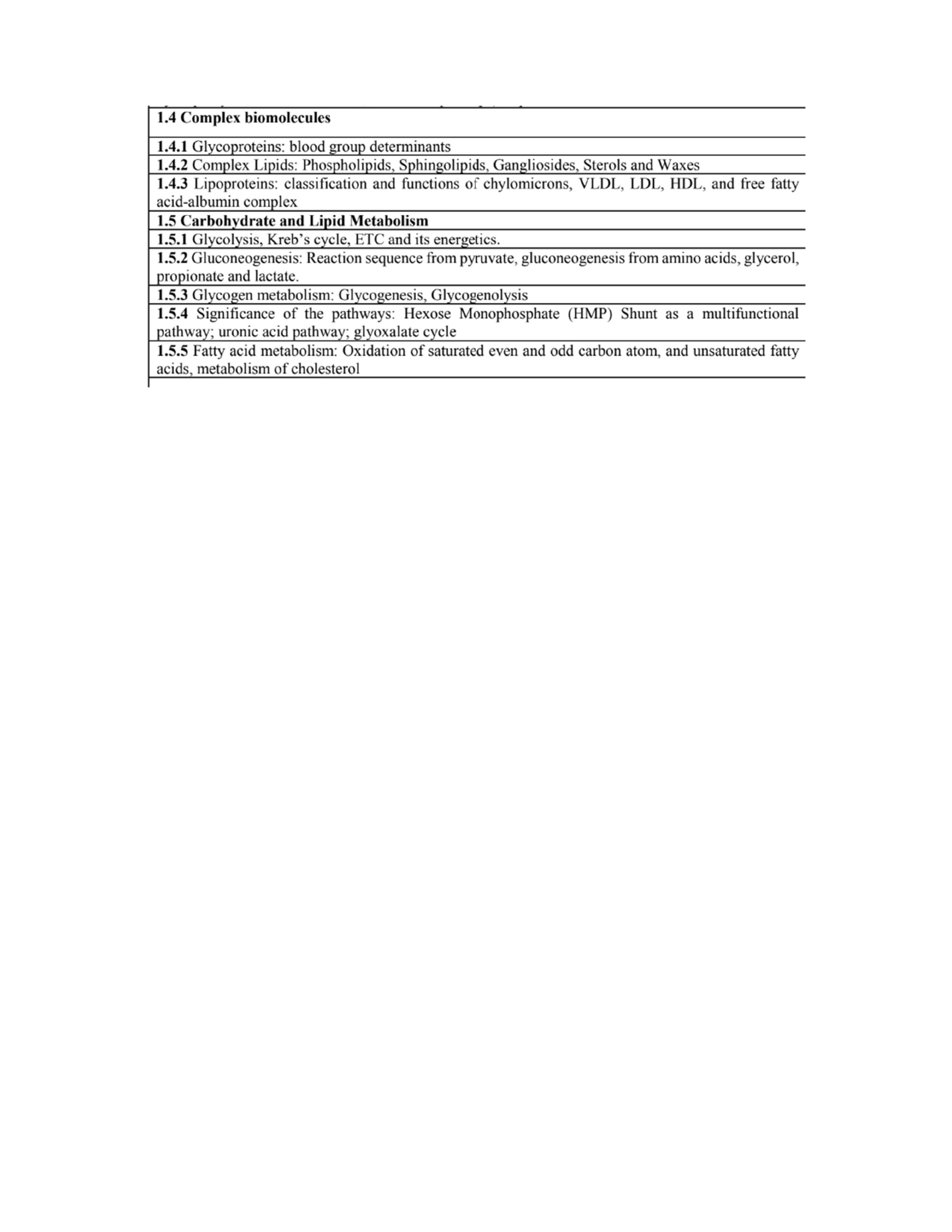
This course contains topics on Biochemistry for MSc Zoology Semester 2. This course is aligned with the NEP syllabus of UoM to be implemented from 2023-24 onwards.
Visit the following sites for more resources https://openstax.org/, https://www.pdfdrive.com/, https://epgp.inflibnet.ac.in/, http://www.gutenberg.org/

This course contains topics on Biochemistry for MSc Zoology Semester 2. This course is aligned with the NEP syllabus of UoM to be implemented from 2023-24 onwards.
This course deals with the classification, structure, properties, biological role and significance of carbohydrates, proteins, lipids and few vitamins.
Learning outcomes:
After completion of this course, the learners will be able to
This course is aligned with the University of Mumbai S.Y.B.Sc. Zoology Semester IV Course IX USZO402 Paper 2 Unit 3 Biomolecules.
This course deals with the structure, types and functions of DNA and RNA. It deals with the basic experiments that prove DNA as the genetic material and RNA as the genetic material in viruses. The processes of DNA replication, transcription, translation and the characteristics of genetic code are explained. A brief account of one gene one polypeptide hypothesis and the operon concept are included.
Learning Outcomes:
After completion of this course, the learner will be able to
This course is aligned with the syllabus of University of Mumbai for S.Y. B.Sc. Zoology (2018-19 onwards) Semester III - Course V USZO301 Paper 1 Unit 3 - Nucleic Acids.
This course deals with the Basics of Enzymology - classification, nomenclature, mechanism of enzyme action, enzyme kinetic, inhibition and applications of enzymes.
Expected Outcomes:
This course is aligned with, but not restricted to, T.Y.B.Sc. Zoology Syllabus of University of Mumbai - Semester VI - Course 16 USZO602 Paper 2 Unit 1 - Enzymology
This Course on Basic Immunology covers the basic concepts of immunity, components of the immune system including a brief account of the antigens, antibodies & their types and antigen processing & presentation.
Expected outcomes:
After completing the course, the learners will be able to
The outline of this course is aligned with the University of Mumbai T.Y.B.Sc. Zoology Semester V-Course 12 USZO502 Paper 2 Unit 3 - Basic Immunology.
This course includes the types of antigen-antibody interactions, vaccines and transplantation immunology.
Learning outcomes:
After completion of this course, the learners will be able to
Collection of a few laboratory techniques
This Course on Genetic Engineering covers the basic concepts of cloning. The tools used for cloning and the methods for the process is explained. In addition, basic techniques in Genetic Engineering like PCR, Sequencing of DNA & proteins, Blotting techniques are discussed
Expected outcomes:
After completing the course, the learners will be able to
The outline of this course is aligned with the University of Mumbai T.Y.B.Sc. Zoology Semester VI-Course 17 USZO603 Paper 3 Unit 2 - Genetic Engineering
UoM syllabus for this unit is in the course image
Learning Outcomes:
After completion of this course, the learners will be able to
This course is aligned with the University of Mumbai T.Y. B.Sc. Zoology Semester VI - Course 17 USZO603 Paper 3 Unit 1 - Molecular Biology.
UoM syllabus for this UnitThis course introduces the learners to the basic concepts of developmental biology in general and the development of chick in particular.
Learning Outcomes:
After completion of this course, the learners will be able to
This course is aligned with the syllabus of University of Mumbai for T.Y.B.Sc. Zoology Semester V Course USZO504 Paper 4 Unit 4 Developmental Biology of Chick
Learning Outcomes:
Successful completion of this course will enable the learners to
This course is aligned with the syllabus of University of Mumbai for T.Y.B.Sc. Zoology Semester V Course USZO503 Paper 3 Unit 2.